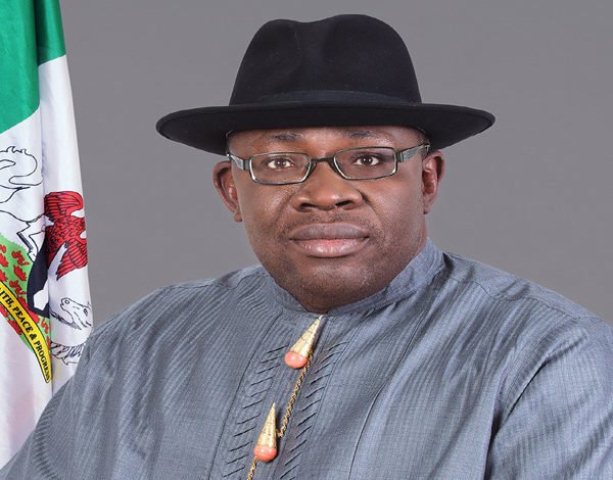Nigeria recorded 4,486 cases of oil spill from 2015 to 2021 – NOSDRA
Nigeria recorded a total of 4,486 cases of oil spill, amounting to 242,193 barrels of oil, from 2015 to 2021, according to recent data from the National Oil Spill Detection and Response Agency (NOSDRA).
An oil spill is the release of a liquid petroleum hydrocarbon or distilled products into the environment, especially the marine ecosystem.
The reported figure of oil spill cases is equivalent to 38.5 million litres of crude loss, representing an average of about 62 cases and 3,362 barrels of oil spills in a month, per data from NOSDRA’s satellite website on April 16.
The data is based on the paper records of joint investigation visits (JIVs), and it is “updated on an ongoing basis.”
The agency noted that there are concerns about regulatory compliance relating to the reporting and clean-up of oil spills by the companies responsible.
SABOTAGE TOPS CASES OF OIL SPILL INCIDENTS
In the six-year period, sabotage, equipment failure, corrosion, and operational/maintenance errors were major causes of oil spills in the country.
The highest incidents of oil spills were caused by sabotage. At 201,025 barrels, they amount to 3,299 incidents, which represent 73.54 percent of the total cases.
Sabotage is the deliberate destruction of pipelines used in conveying crude oil in order to steal the products.
Equipment failure issues caused the second-highest number of oil spills with 26,912 barrels from 442 cases, culminating in 9.85 percent, while corrosion (deterioration of facilities) caused 291 cases, which resulted in 4,466 barrels of oil spill, representing 6.49 percent.
Unstated issues accounted for 273 cases (6.09 percent), maintenance error caused 109 cases (2.43 percent), resulting in 3,733 barrels of oil spills, while the cause of 72 cases (1.6 percent) of oil leaks is yet to be ascertained.
According to the report, the reason behind the spillage of 4,378 barrels of oil was not yet determined by the agency, while the cause of incidents culminating in 1,679 barrels of crude oil loss was unspecified.
WEAK REGULATIONS IN THE OIL SECTOR
The Federal Government, the Nigerian National Petroleum Company (NNPC), and other relevant agencies in the oil industry have continually taken a hit for the problem of oil theft.
The Nigerian Upstream Petroleum Regulatory Commission (NUPRC) had, in March 2022, said Nigeria lost $3.27 billion worth of crude oil to thieves in 14 months.
A few weeks ago, government officials visited Niger Delta communities for an on-the-spot assessment of some pipelines impacted by activities of oil bunkers, promising to end illegal oil bunkering.
Ayodele Oni, partner and chair of the Energy Practice Group, Bloomfield LP, told TheCable that the efforts may yield no result if there is no political will.

Oni said Nigeria’s legal framework must push for existing laws to be applied to the fullest applicable extents, with stiffer penalties meted out on those encouraging oil theft.
“Laws exist, even though some argue regarding their adequacy. Section 2 of the Petroleum Production and Distribution (Anti-Sabotage) Act and Section 7 of the Miscellaneous Offences Act, respectively, provide for up to 21 years imprisonment or the death penalty and life imprisonment for sabotage of oil production and distribution,” Oni said.
These illegal activities are carried out by saboteurs who attack operational pipelines or other oil facilities.
According to the data, cases of oil spills emanated predominantly from pipelines in the period under review.
In 2021 alone, according to the monthly presentations of NNPC Limited to the Federation Account Allocation Committee (FAAC) meeting, N52.28 billion was spent on pipeline security and maintenance costs.
YEAR-BY-YEAR OIL SPILL INCIDENTS
Oil spill incidents occurred 921 times in 2015, resulting in a loss of 47,714 barrels of oil, the highest within the period under review.
In 2016, 688 cases of oil spills occurred, culminating in a volume of 42,744 barrels of oil.
In 2017 and 2018, 596 and 706 cases of oil spills occurred and resulted in the spillage of 34,887 and 27,985 barrels of oil, respectively.
Oil spills occurred on 732 occasions, spewing 41,381 barrels of oil in 2019, and 455 cases were recorded in 2020 with 23,526 barrels of oil.
In 2021, companies reported 388 incidents, resulting in 23,956 barrels of oil.
The present administration had pledged to ensure compliance with policies and measures to halt the pollution of rivers and waterways in the Niger Delta and other parts of the country.
Despite the promises, oil spills have continued to threaten the sanctity of the ecosystem, especially in the Niger Delta — pervading lands, mangroves, creeks, and rivers.
According to the data, oil spills occurred in 16 states, including the Federal Capital Territory (FCT), during the period under review.
The states include Abia, Akwa Ibom, Bayelsa, Delta, Edo, Imo, Kaduna, Kogi, Lagos, Ondo, Rivers, Bauchi, Ogun, Niger, and Zamfara.
The five-highest cases of oil spills occurred in the Niger Delta region — Rivers (1408), Bayelsa (1028), Delta (862), Akwa Ibom (305), and Imo (101) — in the six-year period. It culminated in about 82 percent of the total oil spill incidents in the affected states. Some oil spill incidents affected multiple states, according to NOSDRA.
IOCs TOP OIL SPILL INCIDENTS
According to the data, about 40 oil companies recorded oil spills during the period.
Of the companies, three international oil companies (IOCs) accounted for the highest occurrences, culminating in 74.59 percent of total oil spills.
The top three oil companies include Nigerian Agip Oil Company (NAOC), a Nigerian subsidiary of Eni, an Italian energy firm; Shell Petroleum Development Company (SPDC), the Nigerian subsidiary of Shell Plc; Mobil Producing Nigeria Unlimited (MPN), a subsidiary of ExxonMobil Corporation.
Other operators include Chevron Nigeria Limited, National Petroleum Development Company (NPDC), Eroton E&P, Heritage Energy Operational Service Limited (Heritage), Pipelines and Products Marketing Company (PPMC), Seplat Petroleum Development Company Plc, Total Exploration and Production Nigeria Ltd.
WAY FORWARD
In Nigeria, there are laid down principles guiding the handling of oil spills.
For instance, oil spills should be closed off within 24 hours. However, cases such as the recent Santa Barbara oil spill continued to leak for well over a month.
Oni noted that laws creating regulatory agencies must be amended to give such agencies more powers to inspect, investigate, monitor and reprimand erring companies in more wide-ranging ways.
“Special courts have also been advocated for to deal with trials with the level of urgency required,” he said.
According to NOSDRA, currently, oil companies are required to fund the clean-up of each spill and pay compensation to local communities affected, if the incident was the company’s fault.
But failure on the part of oil companies to fulfil their obligations to host communities has resulted in court cases in the past.
In 2017, the Ikebiri community in Bayelsa state sued Eni, seeking the cleanup of, and compensation for damages from an oil spill that affected the community.
In January 2021, a Dutch appeal court ruled that SPDC pay for damages caused by oil spills in the Niger Delta.
According to Oni, stiffer penalties such as revocation of operating licences, confiscation of assets, the substantial increase in the amount payable as fines, and jail terms for liable company directors, are some stiffer sanctions that can be imposed on environmental polluters.
Follow us on Twitter https://twitter.com/gbaramatuvoice?t=sTL6EfUcYMKhPg8D1vcZfw&s=09
Support Quality Journalism in the Niger Delta Region
Join us in our mission to bring development journalism, cultural preservation, and environmental awareness to the forefront. Your contribution makes a difference in the lives of the people of the Niger Delta. Donate today and be a part of the change!








